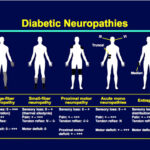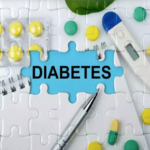It is known the Fasting happens during the month of Ramadan during the day light hours. Different parts of the world have different timings for fasting due to the discrepancy in daylight timing. Though it is an important pillar of the principles of Islam, there are certain times when fasting is medically not advisable. This had been detailed in an earlier post. There is an app called DAR SaFa , which is available in the Play store ( Android users) and I store ( I phone users) . This app is available both in English and Arabic and is easy to navigate.
- The circadian rhythm of the body gets changed as those observing the fast are generally sluggish during the day ( especially after 1 pm till breaking the fast at Iftaar) and become more active at night and some go for recreational sport activities at night or watch movies or television at night. This leads to less hours of sleeping which can affect their level of wakefulness the next day. There is a reduction in total sleep time, delayed sleep habits and reduced rapid eye movement sleep( REM sleep)
- When sleep is deprived, it leads to headache, irritability and lack of concentration. It is similar to the phenomenon of jet lag.
- This also translates to decreased productivity at work or errors in judgment or even road accidents.
It is advised to consult the health care team regarding fasting at least a month before the start of the Holy Month. A trial fasting can be done and adjustments n dosing can be made thus ensuring a safe Ramadan.
The health care team will first ascertain which category the patient belongs to in terms of risk stratification. The patients are classified as either low or moderate risk, high risk and very high risk.
| Low or moderate risk | Well controlled type 2 diabetes |
| Type 2 diabetes on metformin, DPP4 Inhibitors( Galvus®, Januvia®,Trajenta®) or GLP 1 RA( Victoza®) or sulphonyl urea( Gliclazide or glimiperide) |
| High risk | Poorly controlled type 2 diabetes |
| Well controlled type 1 diabetes | |
| Well controlled type 2 diabetes but on multi dose insulin therapy | |
| Pregnant Type 2 diabetic or gestational diabetes on diet control and or metformin | |
| Those diabetic patients performing intense physical labor | |
| Kidney disease stage 3 | |
| Those with stable complications such as stroke, heart disease |
| Very High risk | Poorly controlled type 1 diabetes |
| Those with recurrent hypoglycemia or unawareness of hypoglycemia | |
| Those who had very high sugar levels with or without ketosis in past 3 months | |
| Those who have any acute illness | |
| Those who have end stage kidney disease or stage 4 kidney disease | |
| Gestational diabetes on insulin therapy | |
Besides the above criteria, the type of medicines the patient is on, the previous Ramadan experiences, the type of diabetes, the presence of associated medical problems and social or working conditions also are to be considered.
Some countries have different religious views which have to be respected. Some may insist on fasting though they are labelled as very high risk or high risk. This has to be discussed with the patient and family members .
Be prepared for multiple sugar level testing either by the finger pricking ( glucometer) or the flash glucose sensors or continuous glucose monitors. The sugar levels before suhoor, midday, and after iftaar are important, but depend upon the major food intake. Some take more food after the Tharawiah prayers.One can check more frequently based upon the needs. Checking the sugar levels by finger jabs does not count as breaking the fasting.
When the sugar levels are either more than 300 mg/dl( > 16.7 mmol) or less than 70 mg/dl( <3.9 mmol) fasting is to be stopped immediately.
- Normally working hours are shortened for those observing the fast and work is started late.
- Break the fast with a small meal- dates, buttermilk or tender coconut water are the best. Having lots of fried food , sugary beverages or snacks can upset the rhythm of the body and indigestion can set in.
- Have a reasonable meal after night prayers. Alternatively some have the meal after an hour of breaking the fast.
- Take a diet having some carbohydrates, lentils, vegetables, proteins, fruits and some dairy produce to make it balanced. Generally, whole grains, temperate fruits, legumes, green salads, tuna, sardines, salmon fish, skinless poultry, not more than ten non roasted nuts are included in the diet. Proteins can help maintain satiety and also preserve lean body mass.
- Avoid taking too much salt , sugar or fried food.
- Avoid drinking too much coffee or tea as these can promote diuresis which can cause excess urination and dehydrate one in the morning.
- Please sleep some time after the dinner and after Suhoor meal so as to keep the body rhythm as it is.
- At Suhoor try taking food that digests slowly- lentils, beans, rice, yogurt, are good.
- Some prefer having one meal at 11 pm and drink water at Suhoor.
- Exercises such as walking can be done after the Tharawiah. Please avoid exercising heavily before breaking the fast as the body will already be exhausted.
- Please drive early back home before Iftaar as traffic can get rash at that time. Car pooling is an option if feasible.
- Please follow traffic rules, wear the seat belt, signal properly while driving as all these can get deranged when tired. Drive less than the speed limit so that you have enough time to respond to an emergency.
- The driver in the next lane might be tired as well
- Jumping the signals are common at that time before breaking the fast.
- The response time to braking might be delayed due to fatigue.
- Please avoid driving long distances during that time, if possible.
- If you feel tired or sleepy, please stop the car on the side and take a power nap.
- While parking the car, please make sure the hand brake is applied, turn off the car. These appear silly but have been done due to the lack of concentration.
- While at work, try sharing work that demands heavy physical exertion and work in groups to help.
- Eating throughout the night will not help the body the next day as the digestion cycle is 6-8 hours.
- Overeating or eating wrong food leads to indigestion, gastritis, loose stool and vomiting.
- Having junk food is not advisable for the same reason.
- Regarding medicines the timings and doses may change during Ramadan. Please ask your treating doctor before Ramadan starts. There are so many medicines which have been added to the array of blood sugar lowering medicines. However, it is advisable to ask the health care team which medicines can be used and also the timing of the medicines so as to be able to fast safe. Those who are on medicines being taken thrice a day will have to twice daily extended release forms, those on insulin three times a day may have to switch to twice daily dosing, some medicines which can cause low sugar may have to be revised. Please confirm with your health care team.
- There may be times when fasting is not safe for the patient. Please discuss with the doctor.













